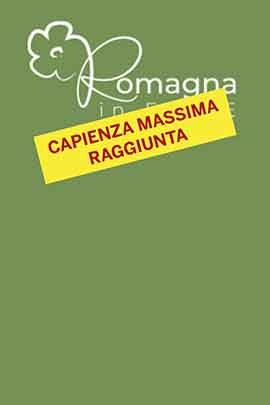In tempo Domini: a music and faith itinerary with five liturgies in the city’s Basilicas
San Vitale, splendid of gold and mosaics, and the sober simplicity of Sant’Agata; the hieratic impressiveness of Sant’Apollinare in Classe, and the solemn Baroque of the Basilica Metropolitana. All bound by the fil rouge of the liturgies, an itinerary where music and faith meet and visit, Sunday after Sunday, the churches of Ravenna. In templo Domini is a traditional, much appreciated part of the Ravenna Festival, that every summer combines the splendid churches – the keepers of Ravenna’s heritage, art, spirituality – with music programmes that shed new light on the history of devotion in Europe, thanks to world-renowned artists. This year, the scores bear the signatures of two 15th-century composers, Guillaume Dufay and Johannes Ockeghem, but also of 17th-century Claudio Monteverdi and Aurelio Signoretti; there is also a tribute to Domenico Bartolucci, five years after his death. With regard to the artists: the ensemble Voces Suaves is from Switzerland, the Graindelavoix from Antwerpen, the Heinavanker from Estonia; Italy is represented by Ludus Vocalis from Ravenna itself and the choir of the Cathedral of Reggio Emilia.
Sunday, 10 June at 10 am, the Voces Suaves will perform in this year’s first liturgy. The Basilea-based ensemble was founded in 2012 and has been working all over Europe; their interest focuses on Renaissance and Baroque music, combining historical performance practice to a warm and full overall sound. For the evening concert in the “Dante’s basilica” of San Francesco (Quivi sospiri, 9 June at 9 pm), the eight members of the ensemble will undertake a journey through the worlds of the Commedia; while the liturgy at Sant’Apollinare in Classe will feature music by Claudio Monteverdi, Luca Marenzio, and Carlo Gesualdo.
Sunday, 17 June at 10.30 am, a tribute to Flemish composer Guillaume Dufay, a central figure of 15th-century music who was sought out by French, Flemish, and Italian courts, by popes, princes, and nobles. He was probably the most influential musician of his time – to the point that the first 60 years of the 15th century are sometimes referred to as the age of Dufay – and the recipient of the tribute paid by Graindelavoix in San Vitale. As pioneers of a courageous and innovative approach to ancient repertoires, the Belgian ensemble Graindelavoix confers great importance to the individual contribution of its members, each of whom has been selected with great care. With the lead of anthropologist and ethnomusicologist Björn Schmelzer, they will also perform in an evening concert in the same Basilica (Cypriot Vespers at 9.30 pm).
Sunday, 24 June, at 10.30 am, the third liturgy takes place in the Basilica of San Vitale, this time with the Ensemble Heinavanker in the occasion of the centenary of the Estonian independence. The programme ranges from Johannes Ockeghem, another key-composer of the French-Flemish School of the 15th century, and compositions by Margo Kölar, the artistic director of the ensemble. Traditional Estonian music will be included as well, as a distinctive feature of Heinavanker’s repertoires, and will be performed in the evening concert as well (at 9.30 pm at San Vitale).
Sunday, 1 July, at 11.30 am, the Ludus Vocalis will be in Sant’Agata Maggiore – with Stefano Sintoni’s lead – for a tribute to Cardinal Domenico Bartolucci, who was a composer and the long-time director of the Choir of the Sistine Chapel, and died in 2013. In 1952 Lorenzo Perosi appointed him vice-maestro of the Sistine Chapel; after Perosi’s death in 1956 Bartolucci was made director of the Choir of the Sistine Chapel by Pope Pio XII; he kept the position until 1997. He is considered one of the most important interpreters of Palestrina and composed over 40 volumes of madrigali and masses, hymns and oratories, all created under the name of the love and respect for the great tradition.
Sunday, 8 July, at 11 am, In templo Domini ends at the Basilica Metropolitana with a mass led by Monsignor Lorenzo Ghizzoni, Archbishop of Ravenna-Cervia. Aurelio Signoretti’s Missa sine nomine will be performed in the occasion. Signoretti was maestro di cappella in Reggio Emilia and Primo Iotti, who curated the transcription and orchestration of the Missa, will conduct (and play the organ for) the Choir of the Reggio Emilia Cathedral for this extraordinarily beautiful and deeply intense composition dating back to 1626. The choir was among the applicants to the international call for proposals Vespers in San Vitale, and found place among the performers of the liturgies programme.
Free admission to all the liturgies In templo Domini.
